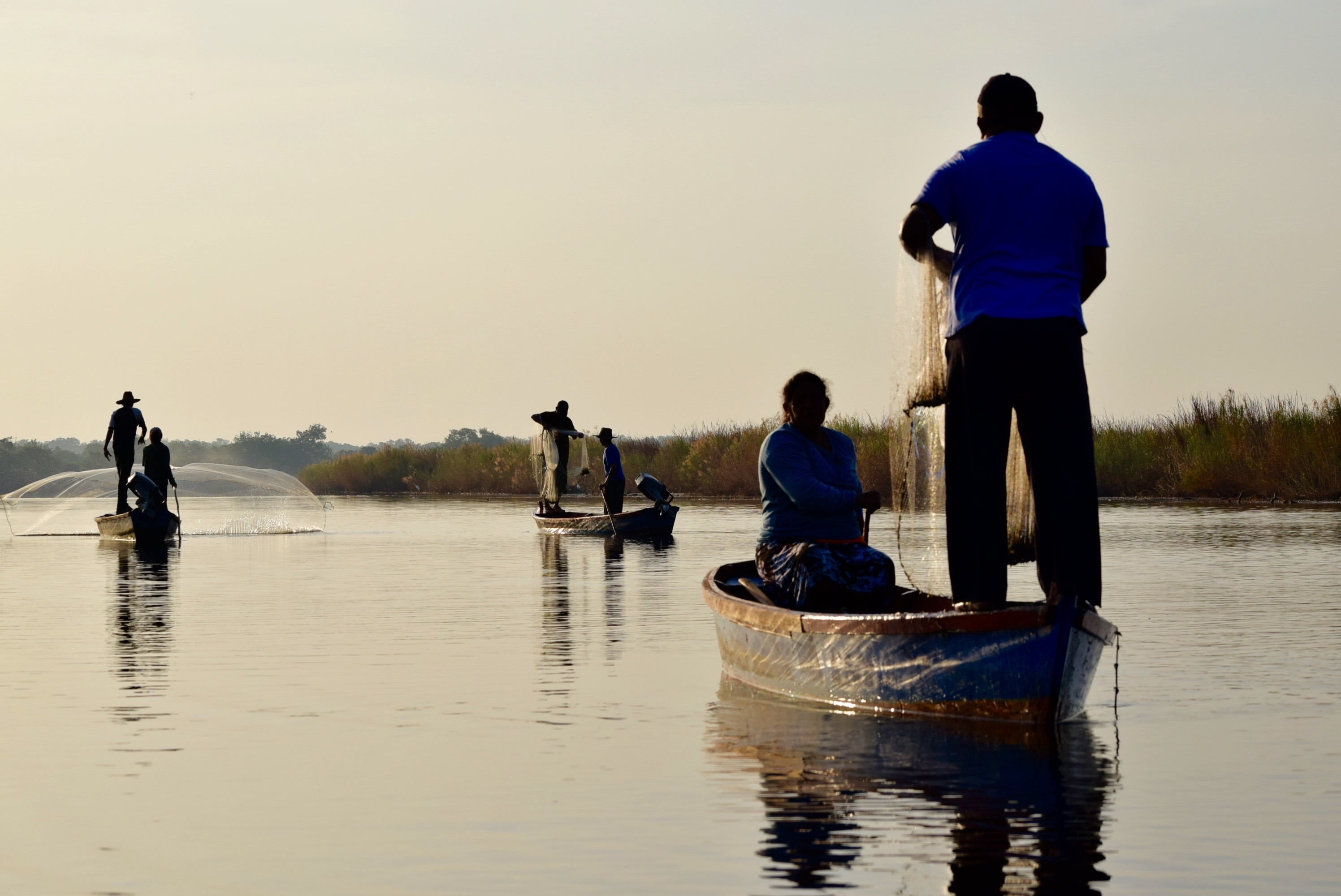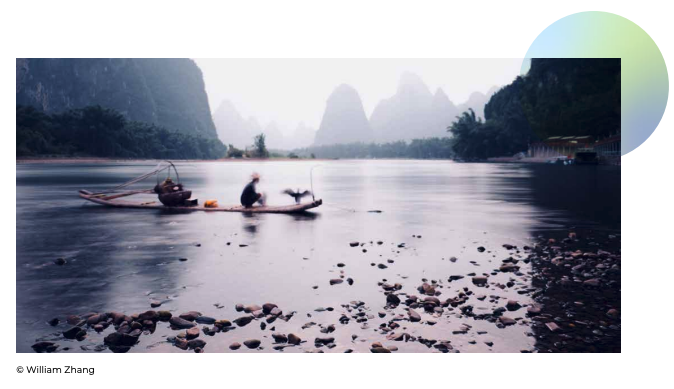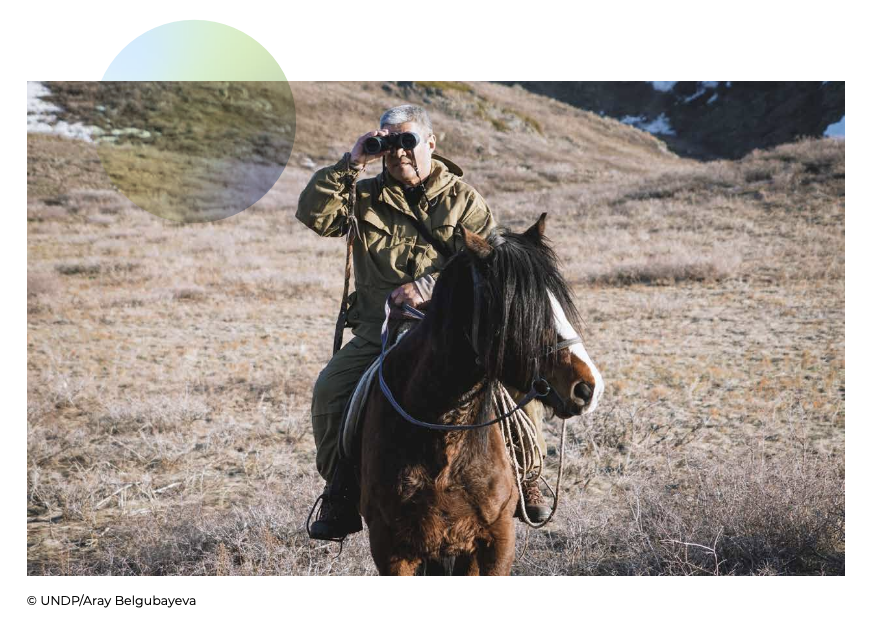
By Midori Paxton, Head, Ecosystems and Biodiversity, UNDP
Let us step back in time to more than 2000 years ago, when Chinese philosophical and historical texts contained sophisticated conceptions of nature and our place within it. Daoism, a school of philosophical thought popular to this day, focused on the relationships between the various natural elements rather than what makes or controls them, emphasizing the need to maintain balance with them. Meanwhile, yin (dark, cold, negative), yang (light, hot, positive) and the five elements (water, fire, wood, metal, and earth) are ancient concepts universally known. These elements have been used to describe the interactions between complex systems for generations and could be viewed as the early study of nature long before the word “biodiversity” even existed, let alone its scientific study.
Now let us leap across the Pacific Ocean to the Amazon, where indigenous tribes and local communities have long held a reciprocal relationship with the world, acting as allies to nature. The Yanomami tribe have a tradition which symbolises their understanding of humankind's position within our natural ecosystems. Hunters will share their gatherings with the community, but they will never eat their own. Instead, they will accept a gift from another hunter. This simple yet powerful tradition is the story of how life on earth survives and thrives through reciprocation.

Stories like these are found in all corners of the world, demonstrating how our cultures have long valued the protection and preservation of nature, cherishing the fact that we are part of the natural world; both deeply reliant on it, and responsible for how we interact with it. Yet, in recent years, something has changed. Nearly 1 million species are currently at risk of extinction due to human activity. Ecosystems such as the Amazon rainforest, the world’s coral reefs and the boreal forest biomes are all fast approaching the tipping point of irreversible change. And this is a disturbingly recent trend: the number of animals living on Earth has plunged by half since 1970. Lessons learned over generations are being lost due to our insatiable appetite for growth at any cost. Biodiversity is severely declining due to conflicting private and public interests, incoherent policy and governance, and insufficient financing. Having taken more and more from nature, we have neglected to give back to ensure it remains self-supporting, abundant and able to sustain humankind. The US$143 billion spent on biodiversity per year is far below the US$824 billion scientists estimate is required to adequately protect and restore it. Quite simply, we are not meeting our obligations. Ancient traditions show us the unbreakable links between people and nature. Chinese rulers and Yanomami tribe demonstrate how these bonds must be cherished - and that no one person or organization can act alone. It is the responsibility of everyone to come together to properly value nature. How do we do this? Firstly, we must tackle the funding gap. Our profit from the natural world amounts to US$125 trillion to US$140 trillion a year, making the current US$143 billion investment minuscule by comparison. Half the gap between that current investment and what is needed to make a difference could be closed by working smarter with existing funds, policies and investments and shifting the flow of money away from harmful behaviours and toward beneficial outcomes. UNDP-BIOFIN is working globally with government ministries, civil societies, indigenous communities, the private sector, and other groups to secure a nature-positive future for all.
 UNDP-BIOFIN has released a compendium of stories by our partners in the field, all of whom are champions for change. Mayors, community leaders, park directors, rangers, and government counterparts share how they have partnered with BIOFIN to help lead the world towards a more balanced, equitable future. They demonstrate the diverse range of players in biodiversity finance, and the huge range of finance solutions available.
Diversity is a strength inherent in both nature and our work.
UNDP-BIOFIN has released a compendium of stories by our partners in the field, all of whom are champions for change. Mayors, community leaders, park directors, rangers, and government counterparts share how they have partnered with BIOFIN to help lead the world towards a more balanced, equitable future. They demonstrate the diverse range of players in biodiversity finance, and the huge range of finance solutions available.
Diversity is a strength inherent in both nature and our work.
--
Click here to download the collection of stories, or alternatively click the links below to read the stories.
Categories
Countries
Archives
- September 2023 (2)
- August 2023 (2)
- July 2023 (1)
- June 2023 (1)
- May 2023 (45)
- April 2023 (1)
- March 2023 (2)
- January 2023 (4)
- December 2022 (19)
- November 2022 (4)